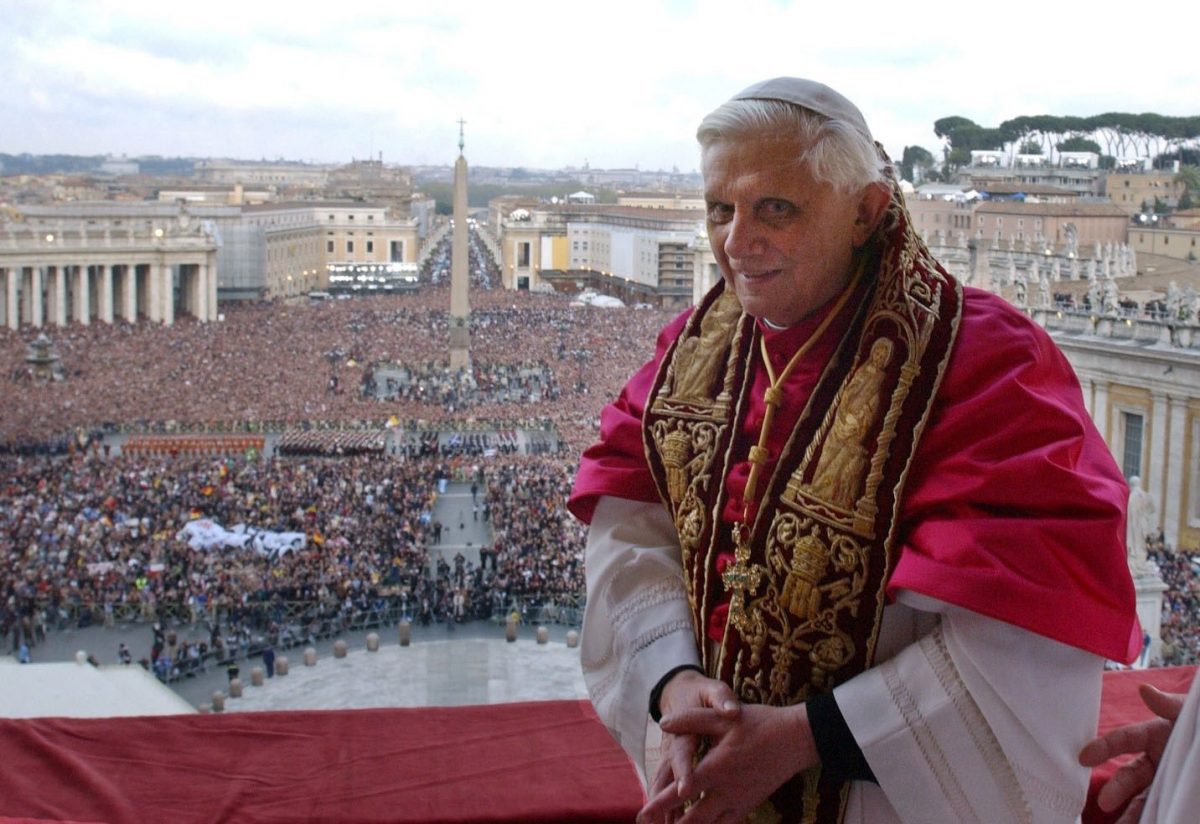VATICAN CITY, (Reuters) – Former Pope Benedict, the first pontiff in 600 years to resign and a standard bearer for conservatives who yearned for a more traditional Church, died yesterday, ending an extraordinary period in which two men wearing white lived in the Vatican.
Benedict, 95, died in a former monastery where he had lived since his shock resignation in 2013.
In his first comment in public after the death, Pope Francis said the Church and the world had lost a noble, gentle person.
Bells tolled in Rome as news of his death, which followed a rapid decline in his health over Christmas, spread to the faithful on an unusually warm winter’s day. Many went to pray in St. Peter’s Square on hearing the news.
“Now we will only have one pope. I must say that Pope Ratzinger was a charismatic pope, humble but above all a great theologian,” said French tourist Emilie Gaillard, using Benedict’s family name.
The Vatican said his body would lie in state from Monday in St. Peter’s Basilica and that Pope Francis will preside at his funeral on Thursday morning in the same square where Benedict, who was then Cardinal Joseph Ratzinger, said the funeral Mass for his predecessor, Pope John Paul II, in 2005.
“With sorrow I inform you that the Pope Emeritus, Benedict XVI, passed away today at 9:34 in the Mater Ecclesiae Monastery in the Vatican,” Vatican spokesman Matteo Bruni said.
“Following the desire of the Pope Emeritus, the funeral will take place in a sign of simplicity,” Bruni said, adding that the service would be “solemn and sober”.
The Vatican has painstakingly elaborate rituals for what happens after a reigning pope dies but no publicly known ones for a former pope – one of the many complications created by Benedict’s resignation.
The Vatican said official government delegations at the funeral would be limited to those from Germany and Italy. Other dignitaries could attend in a private capacity.
Pope Francis disclosed on Wednesday that his predecessor was “very sick”. Bruni said Benedict had received last rites, once known as Extreme Unction and now called “the anointing of the sick”, on the same day.
Leaders were swift in sending their condolences for Benedict, who was the first German pope in 1,000 years.
“We mourn the death of our Bavarian Pope,” said Markus Soeder, premier of Benedict’s home state. German Chancellor Olaf Scholz said on Twitter that the world had lost “a formative figure of the Catholic Church”.
Italian Prime Minister Giorgia Meloni hailed Benedict as “a great man who history will not forget”, while Polish President Andrzej Duda called him “one of the greatest theologians of the 20th and 21st centuries”.
French President Emmanuel Macron said Benedict had “worked with all his soul and intelligence for a more fraternal world”.
Britain’s King Charles said he remembered his meeting with Benedict with fondness and noted “his constant efforts to promote peace and goodwill to all people, and to strengthen the relationship between the global Anglican Communion and the Roman Catholic Church.”
For nearly 25 years, as Cardinal Ratzinger, Benedict was the powerful head of the Vatican’s doctrinal office, then known as the Congregation for the Doctrine of the Faith (CDF) and considered one of the Church’s greatest theologians.
In that role, he crushed dissent by Liberation Theologians, saying they were mixing Marxist thought and Christianity.
He was elected pope on April 19, 2005 to succeed the widely popular John Paul, who had reigned for 27 years. Cardinals chose him from among their number seeking continuity and what one called “a safe pair of hands”.
Child abuse scandals hounded most of his papacy but he is credited with jump-starting the process to discipline or defrock predator priests after a more lax attitude under his predecessor.
But Benedict himself acknowledged that he was a weak administrator, saying he showed a “lack of resolve in governing and decision taking” during his eight-year papacy which was marked by missteps, particularly in relations with Islam and Judaism.
The year before his resignation was dominated by the “Vatileaks” scandal, in which private papal documents appeared in the media, exposing a dysfunctional Vatican riven with internal strife, corruption and feuding.
He announced he was resigning in Latin at a routine meeting of cardinals. Many had no idea what he had said and it took time before the news sank in. He himself said he was no longer strong enough to lead the Church due to his “advanced age”.
After his resignation he installed himself in a converted convent on the Vatican grounds and chose the title “pope emeritus”.
Although he said he would remain “hidden from the world” in his retirement, Benedict sometimes caused controversy and spread confusion through his writings and interviews.
Although he rarely appeared in public, Catholic conservatives looked to the former pope as their standard bearer and some ultra-traditionalists even refused to acknowledge Francis as a legitimate pontiff.
They have criticised Francis for his more welcoming approach to members of the LGBTQ+ community and to Catholics who divorced and remarried outside the Church, saying both were undermining traditional values.
Despite the difficulties that emerged from having two men wearing white in the Vatican, Francis developed a warm relationship with Benedict, and said it was like having a grandfather living in the house.






